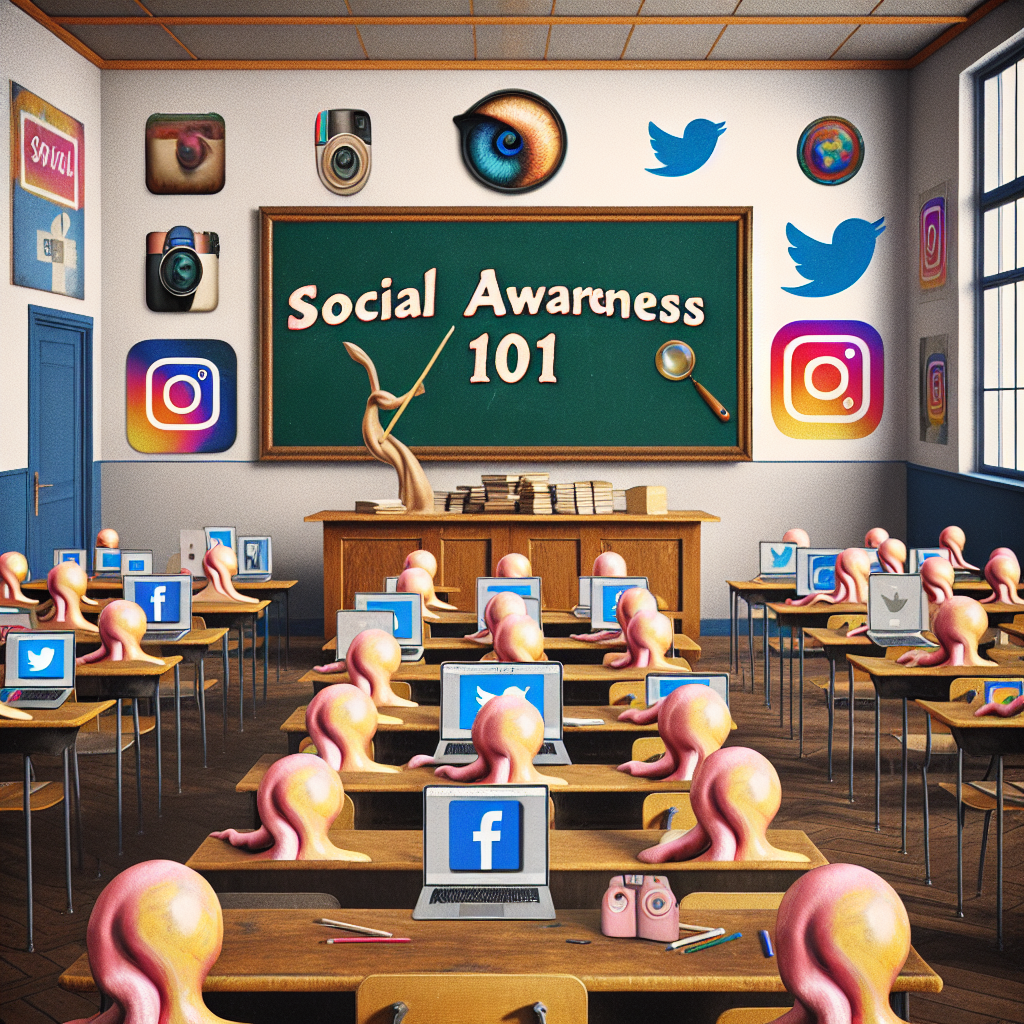Mastering Social Awareness: Practical Steps to Connect and Engage Effectively

Introduction
Importance of Social Awareness
Definition and Relevance in Everyday Life
Social awareness involves recognizing and understanding the feelings, thoughts, and behaviors of those around us. This skill is crucial for effective communication and building meaningful relationships in both personal and professional contexts.
Benefits of Being Socially Aware
- Improved interpersonal relationships
- Enhanced empathy and compassion
- Better conflict resolution abilities
- Increased cultural sensitivity and understanding
Examples of Social Awareness in Action
- Noticing when a friend or colleague is upset and offering support
- Modifying behavior to avoid offending someone from a different cultural background
- Recognizing group dynamics in a team meeting and addressing them tactfully
Overview of the Article
What Readers Will Learn
This article will provide practical steps and insights to enhance your social awareness, making it easier to connect and engage with others.
Roadmap of Topics Covered
- Understanding social awareness and its importance
- Psychological and historical perspectives
- Developing key social awareness skills
- Enhancing social interactions
- Applying social awareness in different contexts
- Overcoming barriers to social awareness
- Continuous learning and adaptation
Points to Keep in Mind While Reading
- Be open to self-reflection
- Embrace continuous learning and improvement
- Practice empathy and active listening
Understanding Social Awareness
What is Social Awareness?
Clear Definition
Social awareness is the ability to perceive and understand the emotions, needs, and perspectives of others, and to respond appropriately in various social situations.
Difference Between Social Awareness and Self-Awareness
While self-awareness focuses on understanding one's own emotions and behaviors, social awareness extends this understanding to others.
Role in Personal and Professional Life
In personal life, social awareness strengthens relationships and empathy. In professional life, it enhances teamwork, communication, and conflict resolution.
Historical Context
Evolution of Social Awareness Over Time
Social awareness has evolved with society, influenced by cultural, political, and social movements.
Key Figures and Movements Emphasizing Social Consciousness
- Martin Luther King Jr. and the Civil Rights Movement
- Mahatma Gandhi and the Indian Independence Movement
- Women's Suffrage Movement
How Past Events Shape Current Societal Norms
Historical events and figures shape our understanding of social justice, equality, and empathy, influencing modern societal norms.
Psychological Perspective
Cognitive Aspects of Social Awareness
Social awareness involves recognizing social cues and understanding social contexts, requiring both cognitive and emotional skills.
Emotional Intelligence Connection
Social awareness is a key component of emotional intelligence, which includes self-awareness, self-regulation, motivation, empathy, and social skills.
How Empathy Plays a Role
Empathy, the ability to understand and share the feelings of others, is fundamental to social awareness. It allows us to connect deeply and meaningfully with those around us.
Developing Social Awareness
Active Listening Skills
Importance of Listening Without Judgment
Active listening involves fully concentrating, understanding, and responding thoughtfully to what is being said, without passing judgment.
Techniques to Improve Listening Skills
- Maintain eye contact
- Nod and show interest
- Avoid interrupting
- Paraphrase and summarize what the speaker has said
How to Respond Thoughtfully
Consider your words carefully, acknowledge the speaker's feelings, and offer constructive feedback or support.
Observing Nonverbal Cues
Understanding Body Language
Body language, including posture, gestures, and facial expressions, communicates a significant portion of our messages.
Recognizing Facial Expressions and Gestures
Learn to identify common expressions and gestures, such as smiles, frowns, crossed arms, and nodding.
Cultural Differences in Nonverbal Communication
Be aware that nonverbal cues can vary significantly across cultures. Take the time to understand these differences to communicate effectively.
Cultivating Empathy
Steps to Put Yourself in Others’ Shoes
- Listen actively and attentively
- Ask open-ended questions
- Reflect on shared human experiences
Benefits of Practicing Empathy
- Strengthened relationships
- Better conflict resolution
- Enhanced emotional well-being
Empathy Exercises and Practices
- Journaling from another person's perspective
- Engaging in active listening
- Participating in role-playing activities
Enhancing Social Interactions
Building Rapport
Importance of Initial Impressions
First impressions are crucial in forming lasting relationships and establishing trust.
Techniques to Connect with Others Quickly
- Show genuine interest
- Use open body language
- Find common ground
Maintaining Rapport Over Time
Stay consistent, follow through on promises, and show appreciation and respect.\
Effective Communication
Clear and Concise Communication Methods
Use straightforward language, avoid jargon, and be clear about your intentions.
Tailoring Your Message to Your Audience
Understand your audience's background, needs, and preferences to communicate more effectively.
Dealing with Misunderstandings and Conflicts
Address conflicts promptly and respectfully. Use active listening, empathy, and negotiation skills to resolve misunderstandings.
Understanding Group Dynamics
Roles Within a Group Setting
Recognize different roles in groups, such as leaders, facilitators, and contributors, and understand how they interact.
Importance of Inclusivity in Group Discussions
Ensure all voices are heard and valued to foster a collaborative and inclusive environment.
Managing Group Conflicts
Address conflicts constructively by encouraging open dialogue, understanding different perspectives, and finding common solutions.
Social Awareness in Different Contexts
Workplace Settings
Importance of Social Awareness at Work
Social awareness fosters a positive work environment, enhances teamwork, and improves communication.
Navigating Office Politics and Culture
Understand the formal and informal networks and dynamics within your organization to navigate office politics effectively.
Enhancing Teamwork and Collaboration
Promote open communication, respect diverse viewpoints, and build trust within your team.
Social Media Etiquette
Understanding the Impact of Online Interactions
Recognize that online interactions can have real-world consequences. Be mindful of your digital footprint.
Practicing Respectful Digital Communication
Avoid inflammatory language, respect privacy, and engage in constructive conversations online.
Dealing with Online Disagreements
Approach online disagreements calmly and respectfully. Seek to understand the other person's perspective before responding.
Community and Public Spaces
Importance of Social Awareness in Public Settings
Being socially aware in public spaces promotes harmony and respect for others.
Engaging with Diverse Groups
Embrace diversity and seek to understand different cultures, perspectives, and experiences.
Civic Responsibility and Community Involvement
Participate in community activities, volunteer, and engage in civic responsibilities to contribute to societal well-being.
Overcoming Barriers to Social Awareness
Self-Reflection Techniques
Importance of Reflection in Personal Growth
Self-reflection helps identify areas for improvement and fosters personal growth.
Journaling and Mindfulness Practices
Regular journaling and mindfulness practices can enhance self-awareness and social awareness.
Seeking Feedback from Others
Encourage and consider feedback from others to gain different perspectives and improve your social skills.
Avoiding Stereotypes and Biases
Recognizing and Challenging Your Biases
Be aware of your biases and actively challenge them to foster inclusivity and understanding.
Educating Yourself About Different Perspectives
Learn about different cultures, experiences, and viewpoints to broaden your understanding and empathy.
Encouraging Diversity and Inclusion
Promote and practice diversity and inclusion in your personal and professional life.\
Importance of Lifelong Learning
Social awareness is a continuous journey. Lifelong learning keeps your skills sharp and relevant.
Staying Updated with Social Changes
Stay informed about social changes and adapt your behavior accordingly.
Adapting to New Social Norms and Practices
Be flexible and open to new social norms and practices to remain socially aware and effective.
Conclusion
Summary of Key Points
- Social awareness is critical for effective communication and relationship building.
- Understanding cognitive and emotional aspects enhances social awareness.
- Practicing active listening, empathy, and observing nonverbal cues improves social interactions.
- Social awareness is vital in various contexts, including the workplace, social media, and public spaces.
- Overcoming barriers to social awareness requires self-reflection, challenging biases, and continuous learning.
Encouragement for Continuous Improvement
Social awareness is a journey that requires dedication and practice. Embrace opportunities to learn and grow in your social interactions.
Final thoughts on the journey of becoming more socially aware
By developing social awareness, you can build deeper connections, foster empathy, and create a more inclusive environment.
Call to action for readers to practice the recommended strategies
Implement the strategies discussed in this article to enhance your social awareness and make a positive impact in your personal and professional life.
FAQs
What are some quick tips to improve social awareness?
- Practice active listening
- Observe body language
- Show empathy
How can I become better at understanding group dynamics?
- Observe group interactions
- Reflect on your role
- Practice inclusive communication
Why is social awareness important in the workplace?
Social awareness enhances teamwork, reduces conflicts, and improves overall productivity and job satisfaction.

